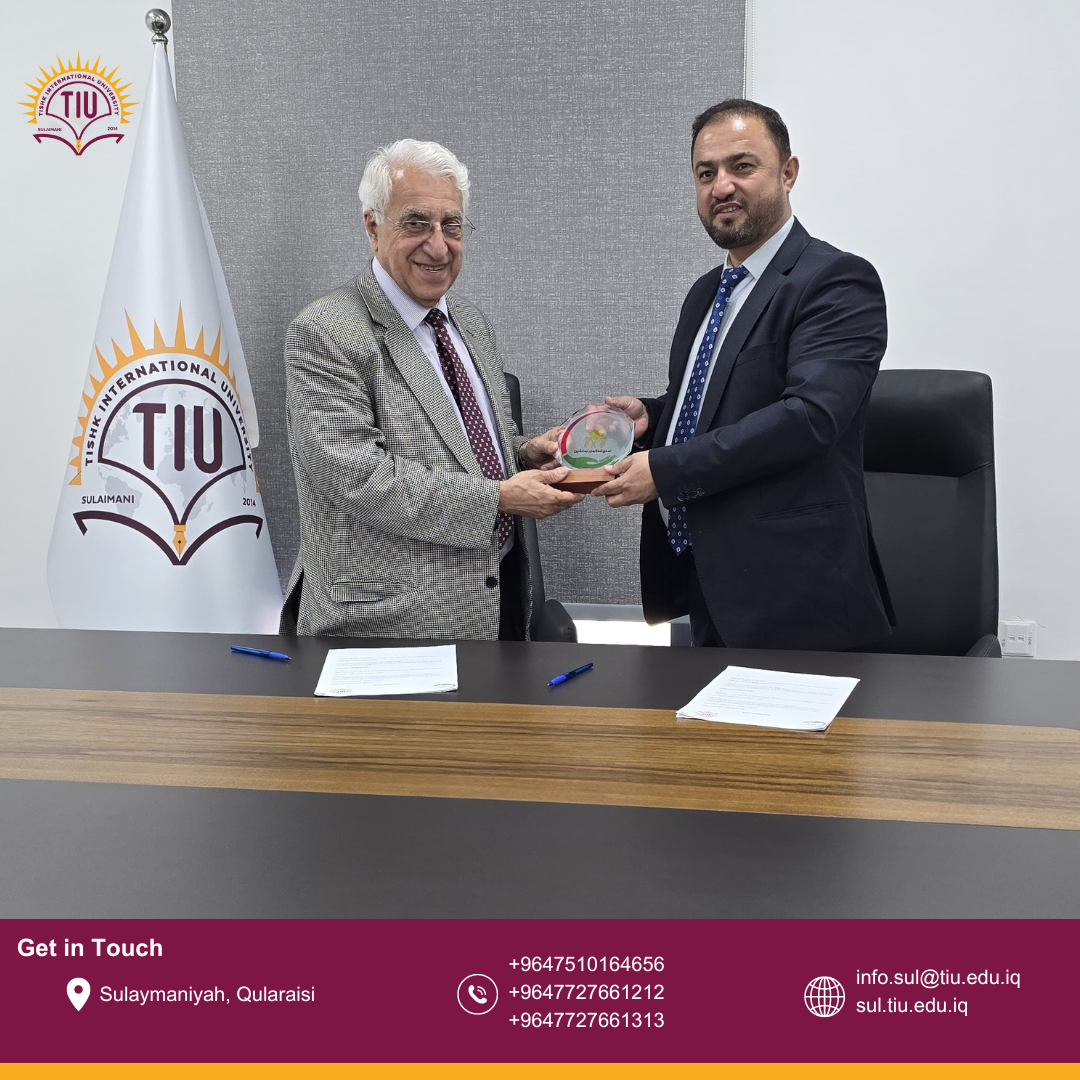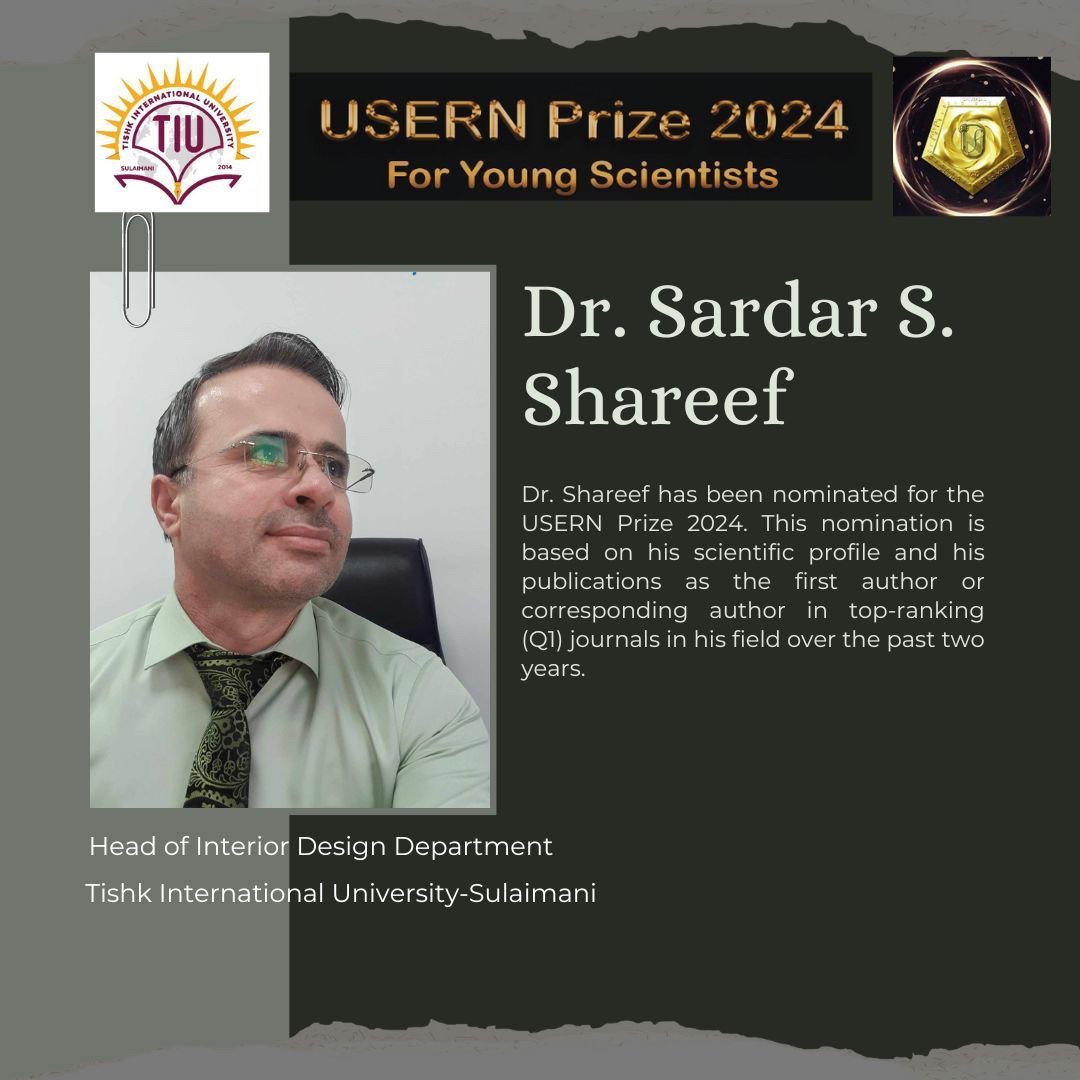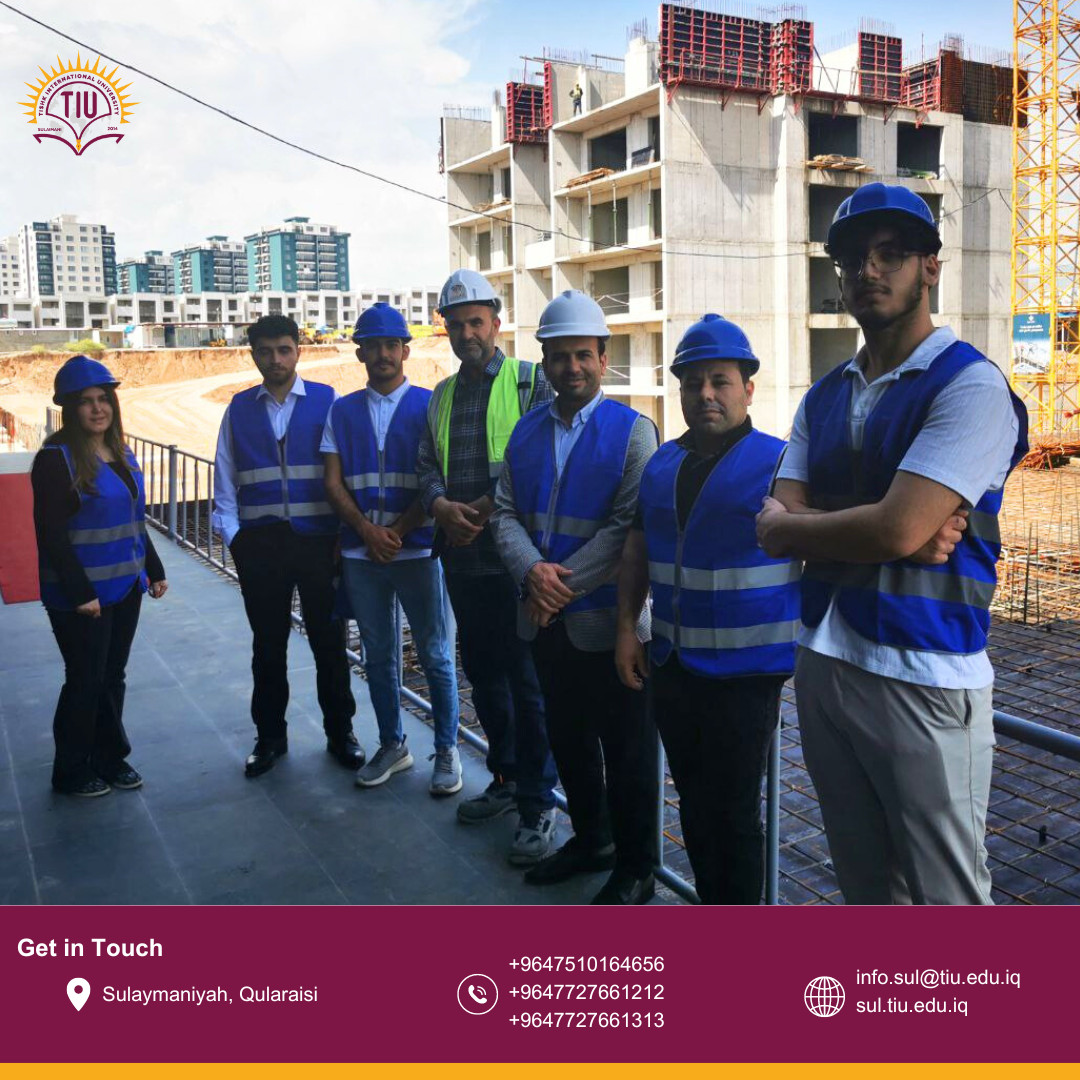An International Workshop on Seismic Vulnerability of Buildings and Building Stock Survey
On November 30th, 2022, the Civil Engineering Department, Faculty of Engineering at Tishk International University-Sulaimani (TIUS), organized an International Workshop on Seismic Vulnerability and Risk Assessment of buildings: A Case Study of Iraq. The workshop consisted of three sessions.
The purpose of this workshop was to explain the effects of earthquakes on different types of building and techniques to estimate the future earthquake damages to the buildings. As well as introducing students to the recent techniques of building stock survey.
The workshop covered the following topics: Digital System for protection of Underground Utilities, Seismic Vulnerability and Risk Assessment and Multiscale Consequence Studies for Hazard Impact on Structures. After welcoming the guests and participants with a speech from the head of the civil engineering department, the sessions started.
In the first session, Mr. Shakhawan Abdullah a licensed civil engineer from Fvrkov Forsyning Denmark Presented a subject entitled “Digital System for protection of Underground Utilities”. Mr. Shakhawan Abdulla introduced a system in which you can make maintenance in an underground facility such (sewage system, water pipes, electric wires) without causing trouble to other one. The system also provides full detail about the location in which maintenance is required. The presentations and talks were concluded by answering the related questions from the participants.
After a short coffee break, the second session started. In the second session, Asst. Professor. Dr. Lars Abrahamczyk From Buhaus Weimer University in Germany explained a subject entitled “Seismic Vulnerability and Risk Assessment”. The second session concluded with a discussion between the participants and presenters.
During the final session, Mr. Peshaw Luqman presented a topic under the title of “Multiscale Consequence Studies for Hazard Impact on Structures”. Mr. Peshawa Luqman also described different techniques for building stock survey and assigned the students to get more participants by making building stock survey in different places of Kurdistan.







